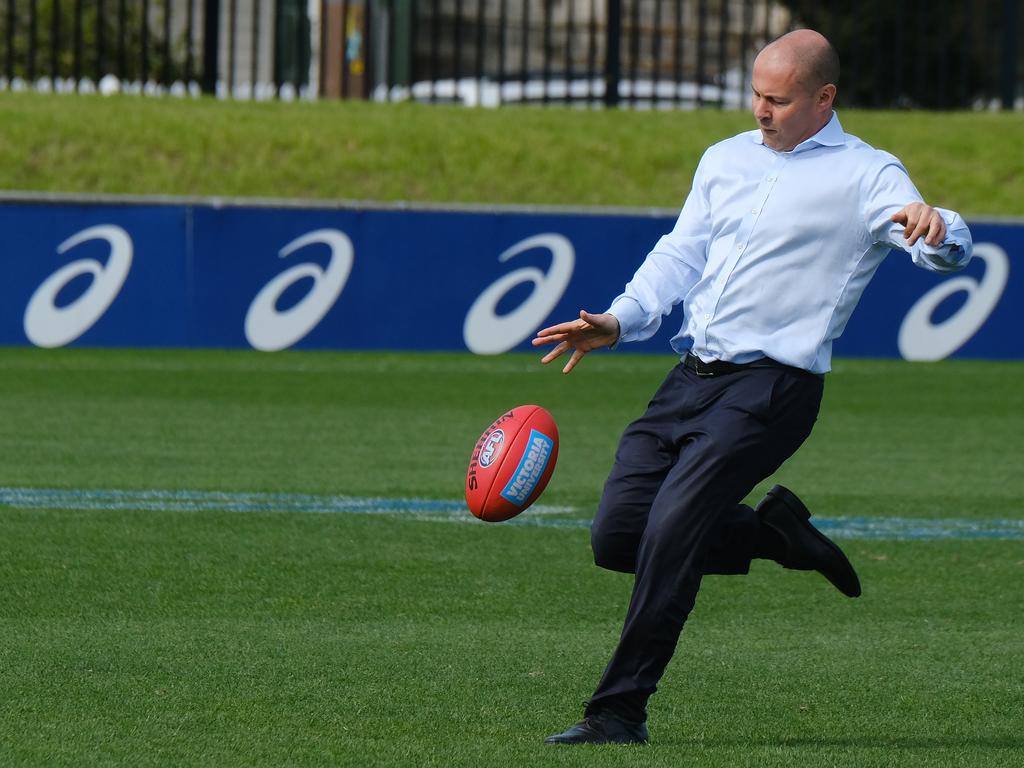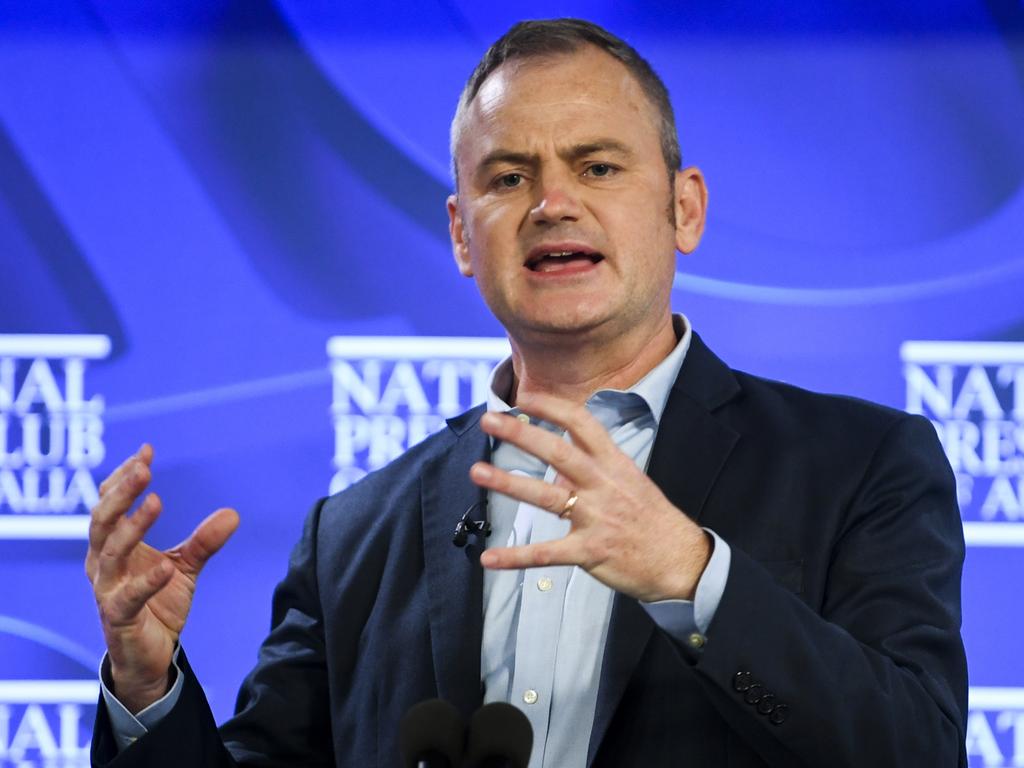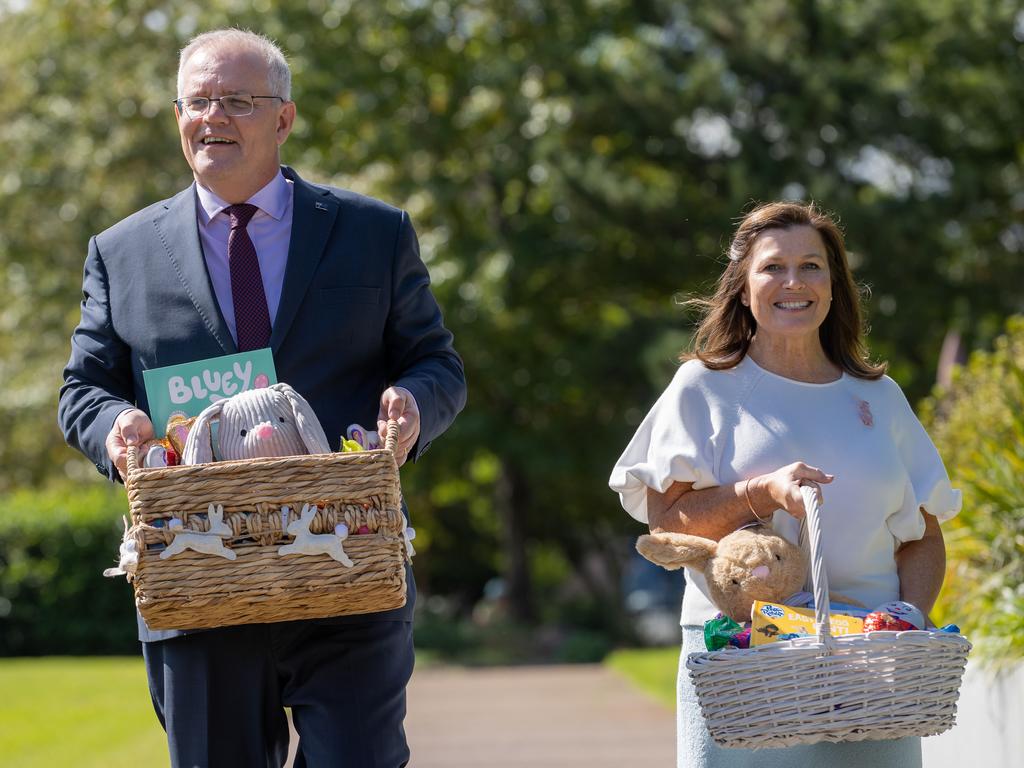Existential threat to Libs as teals drag party left


Should these green-left independents win more seats off the Liberals, their impact won’t be only to elect Labor but also to drive the whole political spectrum further to the left as the Liberal Party becomes even more Labor-lite to try to win back those seats.
Internal polling is said to have the Sydney seats of Wentworth and North Sydney vulnerable, Josh Frydenberg in trouble in his Melbourne seat of Kooyong, and Tim Wilson in Goldstein too. Based on the amount of local signage and on-the ground activity, Liberal MPs also could be in trouble in seats such as Mackellar on Sydney’s northern beaches and Curtin on Perth’s Swan River.
The teals’ pitch is that the Liberals have betrayed their heritage and need to be more progressive to be worthy of support. But the facts show the Liberal Party does best, nationally at least, when it is a clear alternative to Labor rather than a weak echo. Landslide wins to John Howard and Tony Abbott bear this out, as does Malcolm Turnbull’s 14-seat loss in 2016.
Abbott’s old seat of Warringah is the model for what’s happening more widely. The record suggests the election of green-left independents in previously Liberal seats makes it harder for the Coalition to form a government, makes any Coalition government that’s formed less conservative, and risks the Coalition moving to the green-left in an attempt to stem future losses. All of this is a recipe for long-term Liberal Party decline, which is why it’s such a potent strategy.
Before the 2019 election, green-left activist group GetUp and left-wing Liberals associated with the North Shore Environmental Stewards tried to move into Warringah Liberal branches to vote against Abbott’s preselection. Wealthy climate activists raised a vast campaign war chest and began a “Time’s Up Tony” social media push backed by volunteers on the streets and ubiquitous signage. The result? An electorate that had voted 60 per cent for Abbott in 2016 (and 2013) voted 60 per cent for anyone but Abbott in 2019, although his well-known conservative views had never dented his majority previously.
Despite this loss of a once-safe seat, Scott Morrison unexpectedly won the 2019 election campaigning against Labor’s new taxes and job-destroying climate policies, only to turn afterwards. Remarkably, the emissions cuts the Morrison government said were going to be economy-wrecking before the election became all but essential after the election as the Coalition embraced Labor’s long-term goal of net-zero emissions by 2050 and shifted left.
Whether the internal clout of senior ministers such as Frydenberg (and his tendency to see almost everything through the prism of Kooyong) were drivers here or not, this move left disregards the reality that it’s outer suburban and regional seats that make or break government, not electorates insulated by privilege.
Or, in other words, to save Kooyong (or Goldstein, or North Sydney) the Coalition could end up losing government.
It’s probably only after the election and the publication of candidates’ funding disclosures that the scale of the teal assault will become clear, although given their use of activist players such as GetUp and hard-to-trace company structures much might remain opaque. It’s reported this week that Simon Holmes a Court and the Climate 200 group that’s backing many of these so-called independents have raised $10m with the objective of winning at least three more Liberal seats. The teals will act as a coalition despite refusing to say who they’d support in a hung parliament.
Holmes a Court strongly denies they’re a political party, even though they’re all running against (only) Liberal incumbents, are campaigning on the same platform, have virtually identical campaign plans down to the colour scheme and have shared campaign personnel with Holmes a Court associate Damien Hodgkinson, who until recently was financial controller for Warringah MP Zali Steggall as well as several other Climate 200 candidates.
While Holmes a Court was once a modest financial supporter of Liberal campaigns and extols what he calls the Menzies progressive tradition, his version of the Liberal Party – patrician, elitist and focused on inner-city virtue signalling – is a far cry from that founded on Robert Menzies’ celebrated Forgotten People broadcast. In it, Menzies specifically decried “the rich and powerful, those who control great funds and enterprises” and denied that “the real life of this nation is to be found in great luxury hotels and the petty gossip of fashionable suburbs”. The people Menzies wanted his party to represent were “salary earners, shopkeepers, skilled artisans, professional men and women, farmers and so on” who were largely “taken for granted by each political party”.
This hardly sounds like the entitled group of candidates, often trading on connections and family money, that Holmes a Court has chosen to sabotage the party Menzies founded.
In any event, in all the Liberal Party’s big federal wins, from Menzies in 1949, through Fraser and Howard to Abbott in 2013, the party has pitched as a strong alternative to Labor: stressing the rights of the individual, greater freedom, lower taxes and smaller government, plus support for small business, the family and traditional values. Some commentators claim the teals’ success would end up driving the Liberal Party to the hard right, especially if Frydenberg were no longer in the parliament to succeed Morrison. In the end, it would depend a great deal on the composition of the party room, and with some key moderates out there’s an argument a stronger conservative emphasis would return, as in the Howard and Abbott era. But just as likely, given the control the Liberal Party’s left-wing has over almost all its state divisions, if teals were to drive them into opposition, the federal Liberals might make the grave mistake of auto-correcting even further left.
Jettisoning its conservative ballast would be an existential threat to the Liberal Party; showing why the cabal behind this teal plan is a lot more strategic (and its membership a lot wider, including disgruntled left-wing Liberals) than most commentators have realised.
Peta Credlin is the host of Credlin on Sky News, 6pm weeknights.






The “teal independents” threatening to snatch once blue-ribbon Liberal seats are not only about changing the government but about changing the Liberal Party, too. Plainly, candidates wanting to win seats from the Liberals aim to harm the Liberal government. Equally plainly, these teals want a more left-wing polity, retailed via the stealth term progressive, even though none of the concessions the Liberal Party makes to political correctness are ever enough.